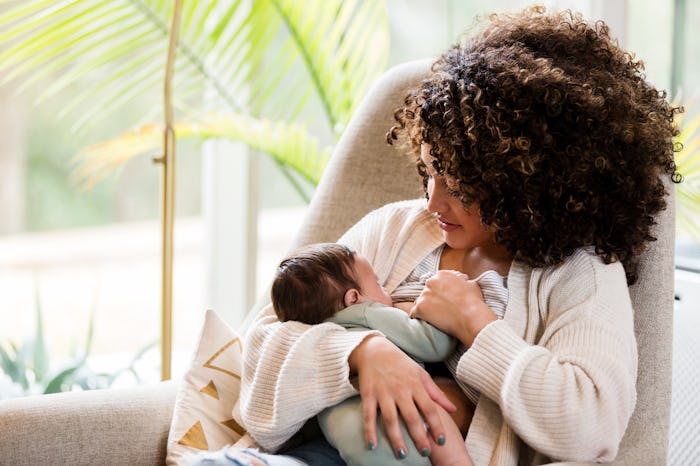Life

Everything You Need To Know About Breastfeeding During The Coronavirus Pandemic
Health organizations, including the WHO and the CDC, recommend avoiding crowds and maintaining a distance of a few feet to help prevent the spread of COVID-19. Basically, we should stay at home as much as possible. Inside the home though, what do these recommendations mean for coronavirus and breastfeeding for nursing mothers and babies?
Based on the information available so far from the CDC on how coronaviruses spread from person-to-person, COVID-19 is transmitted when an infected person coughs or sneezes and the droplets land on a surface or directly into the mouths or noses of nearby people. Nursing mothers, however, might be concerned with if and how the novel coronavirus transmits through breast milk. In the “limited studies on women with COVID-19 and another coronavirus infection, Severe Acute Respiratory Syndrome (SARS-CoV), the virus has not been detected in breast milk," the CDC reported. And because of the immunological protections provided to the baby by breastfeeding, experts agree there’s good reason for nursing moms to continue breastfeeding during the coronavirus pandemic.
International board-certified lactation consultant Tiara Caldwell, LPN, IBCLC, says breastfeeding mothers should avoid weaning during the COVID-19 pandemic. “Continue to breastfeed. Breast milk is the perfect cocktail of antibodies, vitamins, and other immune factors especially during times of illness,” she tells Romper.
In the case of a mother who suspects she’s contracted COVID-19, La Leche League International said in a statement about coronavirus and breastfeeding that it’s even more important to continue breastfeeding. Caldwell agrees, explaining, “There is an incubation period when viruses and bacteria enter your body before you develop symptoms. This means that before you feel sick, your body is already not only fighting the nasty pathogens, but tailoring your milk to protect your little one.”
Women who were infected before giving birth will “produce specific secretory IgA antibodies and many other critical immune factors in their milk to protect their nursing infants and enhance their infants’ own immune responses,” according to the statement by the La Leche League International.
The La Leche League International also encourages continued breastfeeding for women with confirmed COVID-19, pointing to the research showing breastfed babies who were otherwise healthy and remained healthy even when other family members, including the mother, were infected by viruses. Caldwell also advises that mothers diagnosed with COVID-19 continue to nurse as long as they feel well enough to physically do so. The decision whether to nurse or not in any situation, however, is up to nursing mothers. In fact, the CDC’s recommendation is that nursing moms make the decision to stop or continue nursing “in coordination with her family and healthcare providers” and that separation of mom and baby should be considered on a case-by-case basis.
If a mom diagnosed with the novel coronavirus is separated from baby, pumping or hand expressing breast milk will help keep the milk supply from decreasing. In all cases, whether suspected, confirmed, or not infected, the CDC reminds breastfeeding moms to follow good hygiene practices. Wash your hands before and after every feeding or pumping session, sanitize all pump parts after use, and clean and sanitize any toys or other objects that go in baby’s mouth, Caldwell says.
Most importantly, talk to your doctor to make the informed feeding choice that’s best for your family.
If you think you’re showing symptoms of coronavirus, which include fever, shortness of breath, and cough, call your doctor before going to get tested. If you’re anxious about the virus’s spread in your community, visit the CDC for up-to-date information and resources, or seek out mental health support. You can find all of Romper’s parents + coronavirus coverage here, and Bustle’s constantly updated, general “what to know about coronavirus” here.
Experts:
Tiara Caldwell, LPN, IBCLC, licensed nurse, trained doula, board certified lactation consultant, and founder of Crowned and Cradled
This article was originally published on